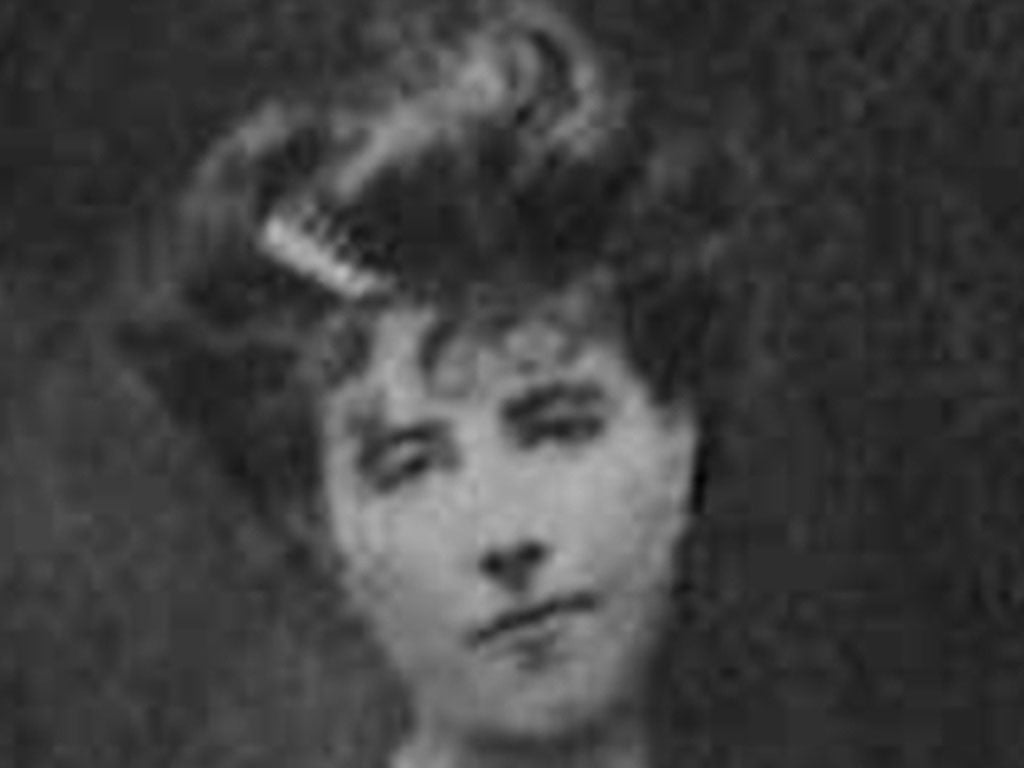Elizabeth von Arnim: The forgotten feminist who’s flowering again
Downton Abbey has given Elizabeth von Arnim’s novels a boost.

Your support helps us to tell the story
From reproductive rights to climate change to Big Tech, The Independent is on the ground when the story is developing. Whether it's investigating the financials of Elon Musk's pro-Trump PAC or producing our latest documentary, 'The A Word', which shines a light on the American women fighting for reproductive rights, we know how important it is to parse out the facts from the messaging.
At such a critical moment in US history, we need reporters on the ground. Your donation allows us to keep sending journalists to speak to both sides of the story.
The Independent is trusted by Americans across the entire political spectrum. And unlike many other quality news outlets, we choose not to lock Americans out of our reporting and analysis with paywalls. We believe quality journalism should be available to everyone, paid for by those who can afford it.
Your support makes all the difference.In Downton Abbey, Molesley, Mathew Crawley's valet, gave Elizabeth von Arnim's first novel, Elizabeth and Her German Garden, to saintly servant Anna (who is at that point mourning an absent Bates), in the hopes that an intimate tête-à-tête about the book will be conducive to romance. Anna hurriedly suggests a book group.
Published in 1898, Elizabeth and Her German Garden was a loosely autobiographical account of Von Arnim's life on her husband's Pomeranian estate, Nassenheide, and was unusual in the way that the sympathetic female narrator either cheerfully disregarded or, more often than not, gently mocked her husband and family. The book was a wild success and by 1899 it had run through 21 editions. She went on to publish more than 20 successful novels and yet, despite all this, her work now exists more or less under the radar.
However, all this may be about to change as in recent months she has been the subject of a discreet resurgence. It started with Virago's republication of Civil to Strangers and Other Writings, which contains the transcript of an interview, given by Barbara Pym to the BBC in 1978, in which she cites Von Arnim as an influence on her own disjunctively ironic style, calling novels The Enchanted April and The Pastor's Wife "a revelation in their wit and... dry, unsentimental treatment of the relationship between men and women." Von Arnim's second appearance of the summer was also thanks to Virago. This Enchanted April was republished as one of a quintet of designer hardbacks with a Liberty fabric cover made by Angie Lewin. Then in Radio 4's Open Book she was voted the most neglected female writer by its listeners. And last but not least, a few weeks ago she even got that fleeting reference on Downton Abbey.
Who was this writer then, so famous in her day and yet only quietly coming into our sights again now? Elizabeth Von Arnim was a member of the literary glitterati: her cousin was Katherine Mansfield; her children were tutored by E M Forster and Hugh Walpole; she was a lover of H G Wells and, perhaps as a consequence of the latter, disliked by Rebecca West (who was also a mistress of Wells). Born Mary Annette Beauchamp in Australia in 1866, daughter of an English merchant, she moved to England as a toddler and in due course studied at the Royal College of Music where she won a prize for organ playing. While sightseeing in Italy, she met Count von Arnim whom she married, and rendered as "The Man of Wrath" in her three memoir-cum-novels (Elizabeth and Her German Garden, The Solitary Summer and The Benefactress).
Von Arnim published a total of 21 novels before her death aged 74 in 1941, the bewildering variety of which makes them difficult to encapsulate. They range from the ebulliently escapist The Enchanted April (best imagined as a combination of Noël Coward, E M Forster and Frances Hodgson Burnett), to the sinister thriller Vera (a novel described by Virago Modern Classics editor, Donna Coonan, as bearing comparison to Du Maurier's Rebecca), to the witty and wistful histoire d'une femme The Pastor's Wife.
If one theme could be found to link all her work it is that of plants and flowers. Where Woolf said every woman needed a room of her own, Von Arnim would have said every woman needed a garden.
Oh, and for any eager Downton Abbey fans wondering why Julian Fellowes chose to single out Elizabeth and Her German Garden, I asked him and it was down to the book's huge popularity at the turn of the century – no secret significance to the plot, I'm afraid!
Join our commenting forum
Join thought-provoking conversations, follow other Independent readers and see their replies
Comments